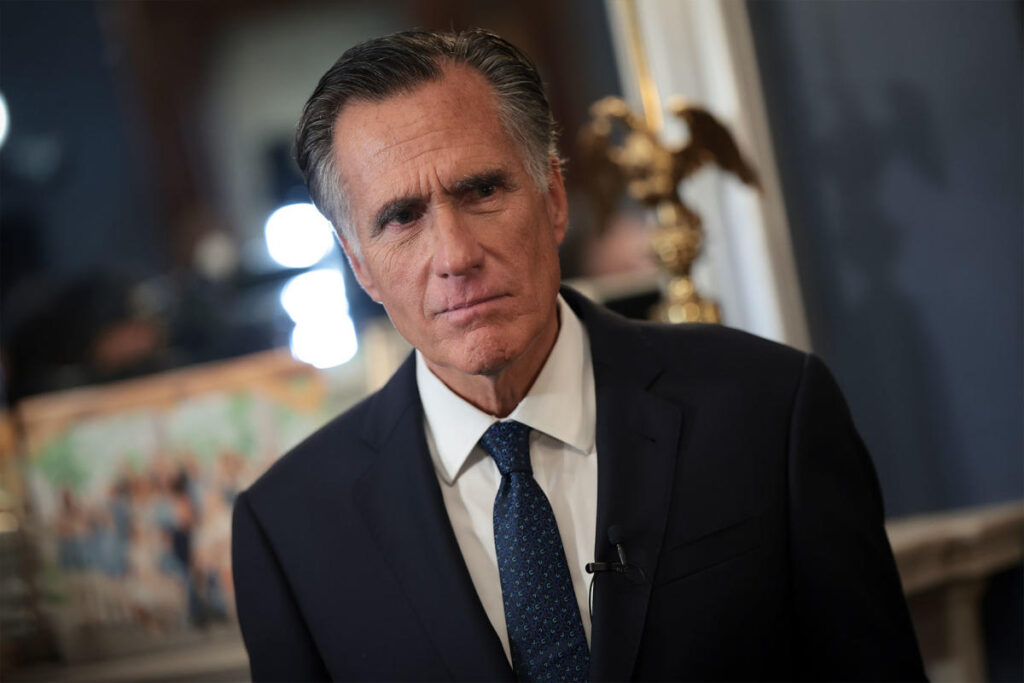In contemporary American politics, a significant shift is evident within the Republican Party, as highlighted by the observations of key figures like Senator Mitt Romney. While Democratic strategists appear fixated on appealing to the dwindling number of Never Trump Republicans, prominent GOP members like Romney acknowledge that traditional conservatism is no longer the party’s dominant ethos. During a recent interview with CNN’s Jake Tapper, Romney identifiably stated that “MAGA is the Republican Party,” signaling a profound transformation in political identity, particularly under the influence of Donald Trump. This acknowledgment marks a departure from the past where establishment Republicans held sway, as personalities like Romney, who once epitomized the party’s elite, now confront a harsh reality where their political ideals struggle for relevance within an increasingly populist and nationalist framework.
Romney, who has consistently critiqued Trump over the years—including voting against him during both impeachment trials—has never endorsed him in presidential elections. His stance stems largely from concerns over Trump’s character, which he has openly articulated. Yet, the former presidential nominee’s recent remarks reveal a nuanced approach: while he does not support the current president, he expresses a willingness to accept the new direction of the party, focusing on common policy goals rather than personal disagreements. This pragmatic view forges a connection despite ideological divides and illustrates a willingness among some traditional conservatives to adapt to the evolving political landscape dominated by Trump’s brand of Republicanism.
With Trump’s influence permeating the party, Romney’s comments underscore the tension between old and new Republican ideologies. The southern and populist elements of Trump’s base—often characterized by conspiracy theories and aggressive rhetoric—are now at the forefront, effectively marginalizing traditional conservative voices. Notably, this shift reflects a broader trend within GOP ranks, where a growing number of lawmakers have either fully embraced Trumpism or have remained silent in the face of its advancing agenda. Romney’s acknowledgment speaks to a reality where the principles of decorum, civility, and the rule of law, once championed by establishment Republicans, are increasingly sidelined by a more confrontational and divisive political discourse.
Despite his reservations about Trump, Romney is ready to cooperate on specific policy issues. His comments that suggest giving Trump a chance in his second term show an understanding that political efficacy sometimes necessitates compromising personal principles for broader party objectives. “I agree with him on a lot of policy fronts,” he noted, demonstrating a recognition that in a majoritarian democracy, securing legislative wins can depend on aligning with the party’s prevailing sentiments, even if they diverge from his own. This shift in strategy illustrates a broader challenge for traditional conservatives who grapple with balancing individual values against the reality of an increasingly monolithic party identity shaped by Trumpism.
Looking ahead, the Republican Party faces a critical juncture: can it reconcile the tension between its loyalist base and the remnants of its once-dominant establishment? As figures like Romney navigate this evolving landscape, it remains uncertain whether they can reclaim some semblance of their traditional values or if they will continue to adapt to the loudest voices within the party. Romney’s outlook reflects a pragmatic acceptance of the current political dynamics while also underscoring an internal struggle that many Republicans face; the ongoing tug-of-war between the past and the present could define the party’s trajectory in future elections. The question remains whether these traditional figures will find ways to influence the party’s policies from within or ultimately fade as the MAGA ideology continues to reign.
The implications of this shift are profound not only for the Republican Party but also for the broader American political landscape. With Trump’s solid hold over the GOP and the accompanying rise of populism within conservative circles, the implications for bipartisan governance and democratic discourse are significant. As establishment figures like Romney attempt to navigate this evolving party identity, they will likely confront challenges that extend beyond personal conviction, revealing the complexities of aligning beliefs with the growing fervor of the current Republican base. The evolving dynamics may lead to further fragmentation within the party, posing questions about electoral success and the future of conservatism in America.
Ultimately, the interplay between Trump’s MAGA movement and traditional conservative ideals reflects key tensions shaping the current political climate. As the GOP attempts to consolidate its identity while reckoning with internal fractures, voices like Romney’s serve as critical reminders of the complexities within a party attempting to define itself amidst the swirling currents of populism and traditionalism. Whether the Republican Party can cultivate a more inclusive identity that combines elements of both camps remains to be seen, but the ongoing discourse within its ranks will undoubtedly shape its political destiny for years to come.

